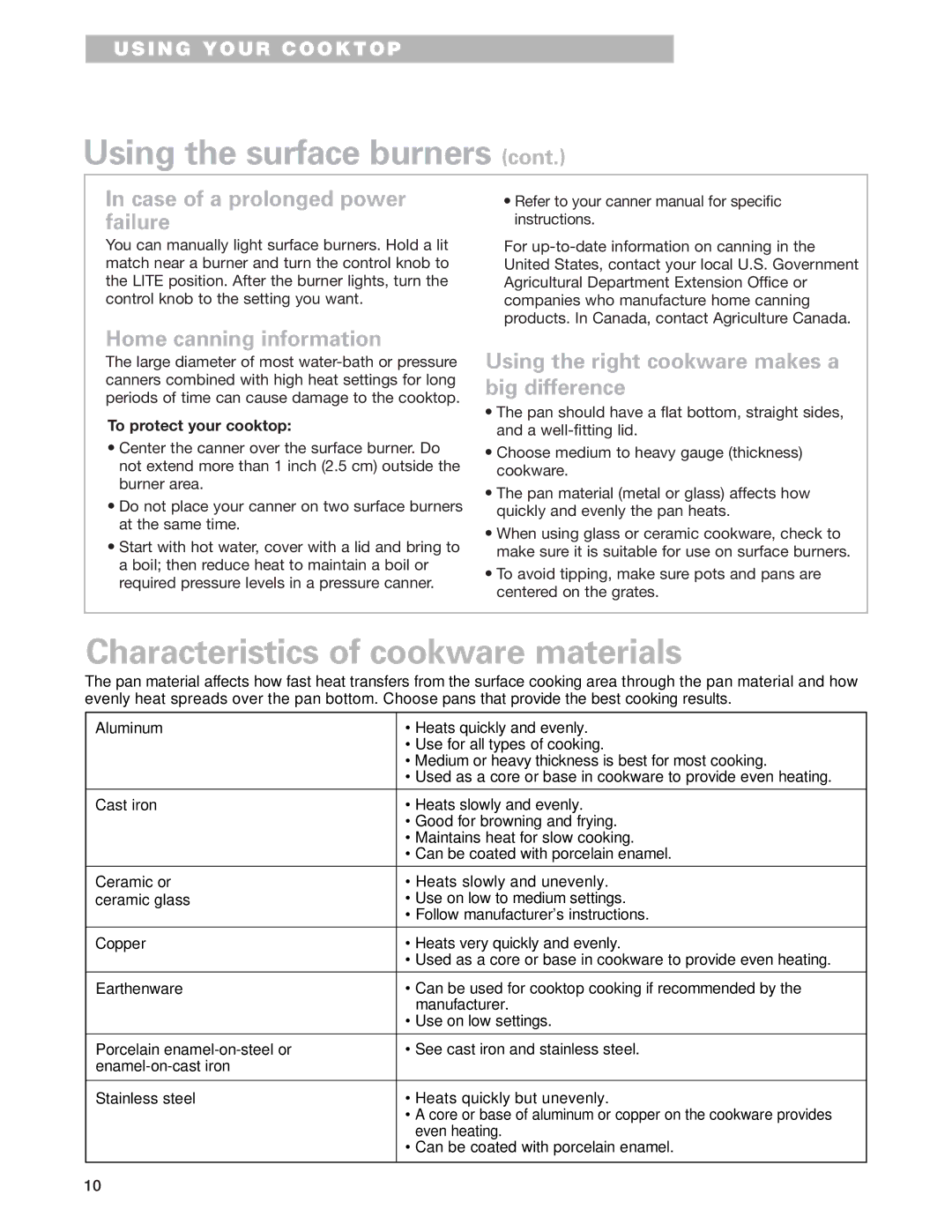USING YOUR COOKTOP
Using the surface burners (cont.)
In case of a prolonged power | • Refer to your canner manual for specific | |
failure | instructions. | |
You can manually light surface burners. Hold a lit | For | |
match near a burner and turn the control knob to | United States, contact your local U.S. Government | |
the LITE position. After the burner lights, turn the | Agricultural Department Extension Office or | |
control knob to the setting you want. | companies who manufacture home canning | |
Home canning information | products. In Canada, contact Agriculture Canada. | |
Using the right cookware makes a | ||
The large diameter of most | ||
canners combined with high heat settings for long | big difference | |
periods of time can cause damage to the cooktop. | ||
• The pan should have a flat bottom, straight sides, | ||
To protect your cooktop: | ||
and a | ||
• Center the canner over the surface burner. Do | • Choose medium to heavy gauge (thickness) | |
not extend more than 1 inch (2.5 cm) outside the | cookware. | |
burner area. | • The pan material (metal or glass) affects how | |
• Do not place your canner on two surface burners | ||
quickly and evenly the pan heats. | ||
at the same time. | • When using glass or ceramic cookware, check to | |
• Start with hot water, cover with a lid and bring to | ||
make sure it is suitable for use on surface burners. | ||
a boil; then reduce heat to maintain a boil or | • To avoid tipping, make sure pots and pans are | |
required pressure levels in a pressure canner. | ||
centered on the grates. | ||
| ||
|
|
Characteristics of cookware materials
The pan material affects how fast heat transfers from the surface cooking area through the pan material and how evenly heat spreads over the pan bottom. Choose pans that provide the best cooking results.
Aluminum | • Heats quickly and evenly. |
| • Use for all types of cooking. |
| • Medium or heavy thickness is best for most cooking. |
| • Used as a core or base in cookware to provide even heating. |
|
|
Cast iron | • Heats slowly and evenly. |
| • Good for browning and frying. |
| • Maintains heat for slow cooking. |
| • Can be coated with porcelain enamel. |
|
|
Ceramic or | • Heats slowly and unevenly. |
ceramic glass | • Use on low to medium settings. |
| • Follow manufacturer’s instructions. |
Copper | • Heats very quickly and evenly. |
| • Used as a core or base in cookware to provide even heating. |
|
|
Earthenware | • Can be used for cooktop cooking if recommended by the |
| manufacturer. |
| • Use on low settings. |
|
|
Porcelain | • See cast iron and stainless steel. |
| |
|
|
Stainless steel | • Heats quickly but unevenly. |
| • A core or base of aluminum or copper on the cookware provides |
| even heating. |
| • Can be coated with porcelain enamel. |
|
|
10
